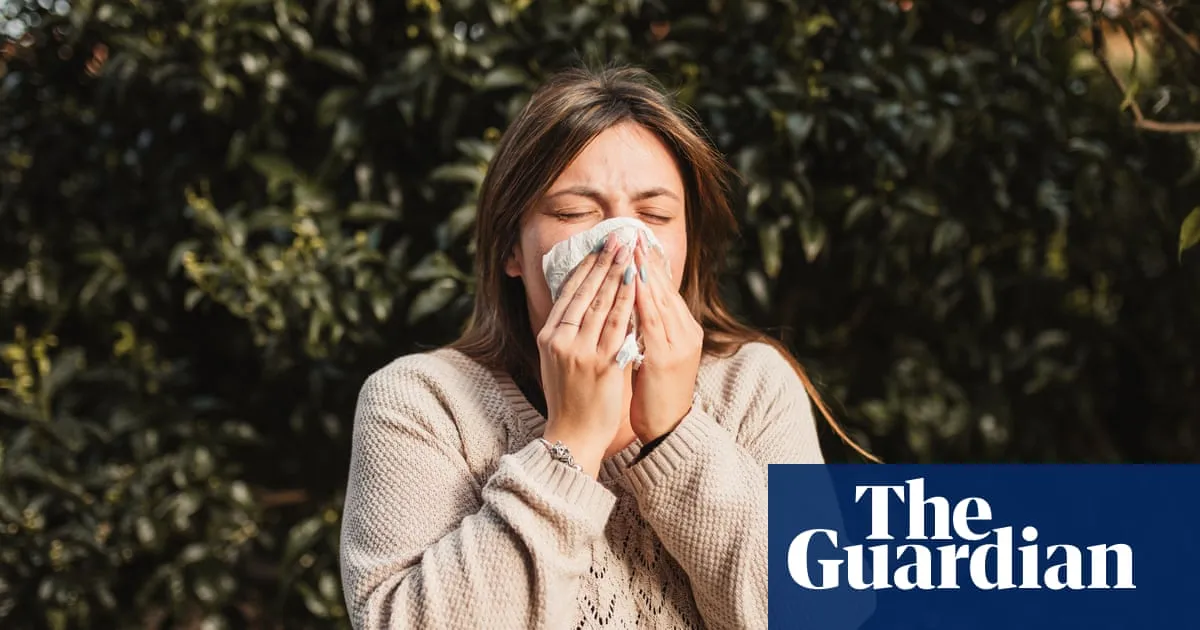
The allergy season has become increasingly difficult to manage in recent years, largely due to warming global temperatures and a rise in extreme weather events. A study conducted in 2021 revealed that the pollen season in North America has extended by 20 days since 1990. Melanie Carver, the chief mission officer at the Asthma and Allergy Foundation of America, states, “Pollen seasons are effectively year-round in some parts of the country.” This alarming trend has significant implications for those suffering from seasonal allergies, also known as allergic rhinitis or hay fever.
In the United States and the United Kingdom, seasonal allergies are primarily triggered by tree pollen in the spring, grass pollen in the summer, and weed pollen in the fall. Statistics show that approximately 26% of adults in both countries experience seasonal allergies, along with around 19% of children in the US and 10-15% of children in the UK. Recognizing the symptoms is crucial for effective management.
Common symptoms of pollen allergies include itchy, watery eyes, a runny nose, sneezing, nasal congestion, post-nasal drip, headaches, sore throat, coughing, wheezing, and difficulty breathing. Dr. Arveen Bhasin, an allergist-immunologist at the Mayo Clinic in Jacksonville, Florida, emphasizes that it’s possible to develop allergies at any stage of life. Carver adds that adults who have never experienced allergies may find themselves facing them for the first time due to environmental changes, as it usually takes about two years to develop sensitivities to specific allergens.
Managing seasonal allergies often requires a proactive approach. Several over-the-counter medications can help alleviate symptoms, including decongestants, antihistamines, nasal sprays, and eye drops. According to Dr. Bhasin, it’s essential to start your medication regimen at least two weeks before the onset of pollen season for optimal effectiveness. She warns that antihistamines can lose their efficacy over time, and if symptoms are not consistently controlled, it may indicate a development of tolerance to the medication.
Nasal sprays also require consistent use; many patients discontinue them prematurely, thinking they are ineffective. Dr. Bhasin notes that it typically takes 10-14 days of regular usage for nasal sprays to reach their maximum effectiveness. Moreover, experts advise caution when using decongestants, as overuse can lead to a rebound effect, exacerbating nasal congestion. Carver advises against using decongestants for more than three days and recommends consulting with a doctor if you have pre-existing health conditions like high blood pressure or heart disease.
Implementing certain lifestyle changes can significantly reduce exposure to pollen. Dr. Payel Gupta, a medical director for allergy and immunology at Tono Health, explains that pollen can cause inflammation and irritation when it settles on the skin or inside the nose and eyes. Since people spend about 90% of their time indoors, it’s vital to manage indoor air quality effectively. Carver suggests keeping windows closed and using air conditioning to circulate clean air, as well as regularly changing air filters.
On days when pollen counts are particularly high, wearing a mask outdoors can offer protection. Additionally, experts recommend removing shoes, showering, and changing into fresh clothes upon returning home to minimize indoor pollen. Investing in an air purifier can also be beneficial, but it’s crucial to select one that’s appropriately sized for your living space, as the efficiency of a purifier depends on the room’s square footage.
If you have tried various management strategies and continue to experience allergy symptoms, it may be time to consult an allergist. Dr. Gupta asserts, “There are so many ways we can help you feel more comfortable.” If over-the-counter medications are ineffective, allergists can offer treatments such as allergy immunotherapy, which may involve allergy shots or sublingual treatment (medicated drops that go under the tongue). These methods can provide longer-term control and relief from seasonal allergies.